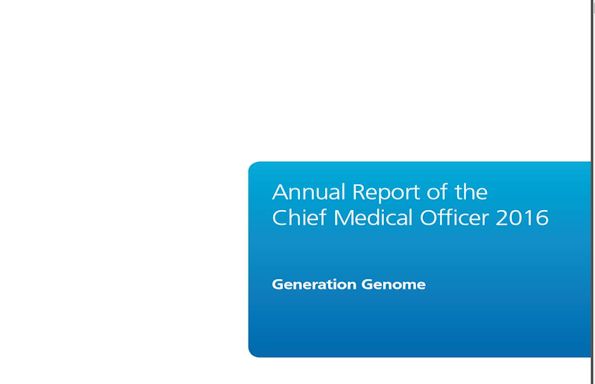
Professor Sarah Coupland from the University’s Institute of Translational Medicine discusses plans to make DNA sequencing for cancer patients routine within NHS England potential to unlock personalized medicine:
In her annual report yesterday, Professor Dame Sally Davies put forward a number of recommendations to enable the delivery of her ‘genomic dream’ of offering routine regular genomic testing for all cancer patients in England within 5 years.
To achieve this, she and the Chief Scientific Officer at NHS England, Professor Sue Hill, will reconfigure the NHS genomic service, to establish a national network of up to seven Genomic Laboratory Hubs (GLH) across the country. These GLH would underpin the future Genomic Medicine Service and the broader research and innovation agenda, building upon the NHS contribution to the 100,000 Genomes Project.
It is planned that the GLH would be geographically evenly distributed, covering defined supraregional areas, to ensure that the hitherto unequal distribution of molecular pathology services across the country will be overcome. One of the 7 GLH is envisaged to be located in the North West England, which has the highest rates of cancer incidence and mortality in the UK.
Cancer focus
This work of the network of GLHs will include all rare, inherited and acquired diseases, with cancer being a major focus. Genomic testing is already standard practice in many cancer types, guiding patient management, including the selection of treatment regimens, the monitoring of therapeutic response, and for cancer surveillance.
The report suggests that ~60% of all cancers have actionable mutations that may be targeted through specific drugs. While in many cases, there are as yet no licensed drugs for such mutations, the routine testing would enable trials for rare subtypes of cancer, which may be impractical to run if specific sequencing for a particular mutation is required.
The advantages of providing the genomic testing in these ‘centres of expertise’ include: a) the provision of a broader repertoire of testing for a wider range of cancers, including the rare and more common types; b) the provision of more in-depth testing, using more advanced technologies, whose costs have decreased significantly in recent years; c) improved data interpretation, storage and mining prospects; d) an increased flow-through of samples would allow for improved cost efficiency and overall decrease in costs; e) improved quality control within and between Hubs; and f) decreased turn-around times of sample testing.
Questions
There are some questions and concerns about the GLH: the first, will all Hubs provide the same tests for patients with all (or the most common) diseases? Or will they also dove-tail to cater for existing referral centres and clinical care pathways, which have been dealing with the less common cancers for several years? The second concern deals with the flexibility of these GLH: it is essential that each Hub stay abreast of research and innovation taking place within the UK and internationally.
That is, the GLH network must stay ‘very close to the ground’ and ‘in tune’ with developments in cancer research, making sure that they adapt any novel platforms or validated bespoke cancer tests, as data and innovation emerge from fundamental science and clinical trials. Another significant concern is the ability of all English Trusts to provide the required therapy, should the genomic tests show a result for an actionable mutation.
And finally, will there be a loss of the ‘personalised on-the-ground care’, which exists in the smaller ‘cottage industry’-like molecular pathology services across the country, when samples are sent into these large ‘factory-like’ GLH in the bid to achieve greater ‘personalised medicine’? I.e. How will these local care pathways be catered for, and will there be help for those communicating results and counselling both patients and their families?
Catch up
At present, England is indeed ‘behind the curve’ in genomic testing in health care, when compared to continental Europe and the US; the establishment of these GLH will enable the NHS to catch up, and hopefully improve health care and patient outcomes in the UK, and particularly address the obvious heath inequalities across the country. Genomic testing at cancer diagnosis, however, cannot be regarded as a panacea for cancer care; significant efforts have to be continued ‘upstream’, i.e. in reducing cancer risks within the population at all ages.
While the genomic data obtained from this ‘Generation genome’ programme will be utilized primarily for patient benefit, de-identified data will provide an invaluable research resource, to better understand cancer biology, and hence improve treatment.
Dame Professor Sally Davies talks of a new ‘social contract’ in which the public recognizes that both they and others will benefit if they allow their genomic data to be studied. Many details are yet to be established including how to allay ethical concerns regarding the use and protection of the data, as well as funding for the initiative. However, this is likely to be a significant step forward that will build upon existing strengths in the NHS, to provide a world leading service for all in the UK.